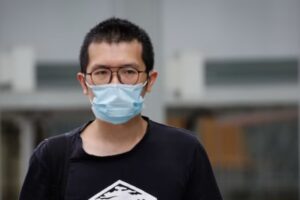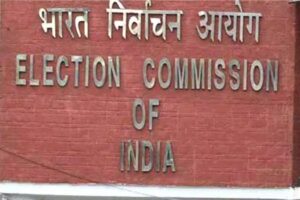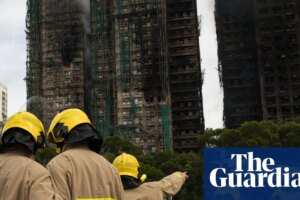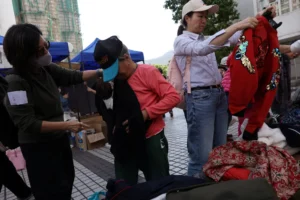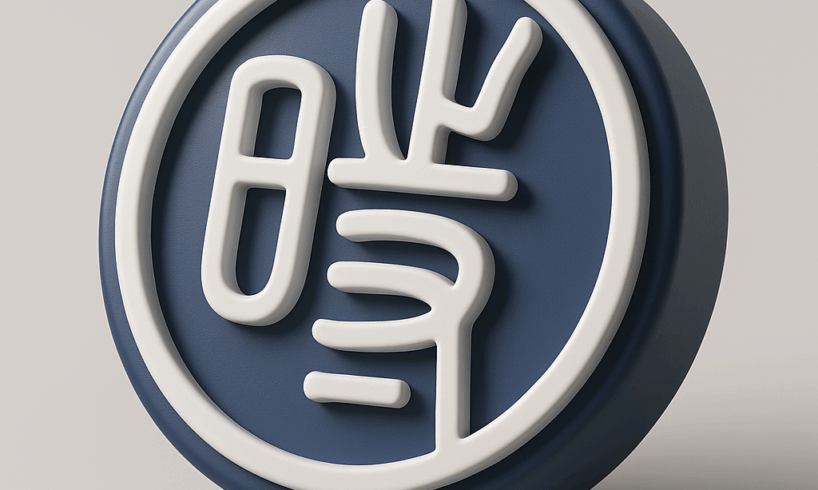
This week, many organizations and media outlets commemorated the tenth anniversary of the 709 (July 9) or “Black Friday” crackdown, a coordinated detention of more than 300 rights lawyers and activists in 2015 that coincided with a marked authoritarian shift in the early Xi Jinping era. CDT has published a roundup of tenth anniversary coverage and activities, including an online gathering of Chinese civil society groups, a joint statement and U.N. appeal by 31 international rights groups, and assessments of the impact of the crackdown on Chinese civil society, rights protection efforts, and lawyers and their families.
Among other content reflecting on the 709 crackdown is a July 8 podcast from JF Books and Liu He featuring a wide-ranging interview (and Chinese-language transcript) with rights lawyer Wu Lei, who now resides in Japan. They discuss topics such as Wu’s path to rights protection, his work as an attorney in China, and his present-day activities in Japan; the history of the rights protection movement in China; how the 709 crackdown altered China’s legal landscape; the fate of lawyers and other rights defenders who remain in China, who have been imprisoned or disbarred, or who have moved abroad; and reasons for hope and continued commitment to protecting the rights of every Chinese citizen. Wu points out that the 709 crackdown was informed by the Party-state’s tendency to view particular groups as a threat, particularly the “new five black categories” of opinion leaders, underground religions, petitioners, rights lawyers, and disadvantaged societal groups.
In a July 7 interview with RFI.fr, rights lawyer Teng Biao spoke about the 709 crackdown and its aftermath, the lingering effects it has had on the legal community and civil society, the perilous position of rights defense in China today, and the deteriorating international environment for human rights and the rule of law, particularly as the U.S. has weakened its support for these endeavors. In the translated excerpt below, Teng describes the many victories of China’s rights defense and civil society groups in the years before the crackdown, and talks about the importance of remembering and commemorating these achievements:
We commemorate the suffering of Chinese human rights lawyers, while also commemorating their idealism, courage, and ability to take action. If China is to have a promising future, it must possess such idealism, courage, and proactiveness. Chinese human rights lawyers (particularly during the Hu Jintao and Wen Jiabao eras, as well as in the first few years after Xi Jinping rose to power) played a prominent role in promoting the rule of law and human rights, and in fostering the development of civil society. From the 1990s onward, there were a number of prominent civil society groups, most notably human rights lawyers, alongside journalists, liberal intellectuals, and others. After Xi Jinping came to power, all of these healthy forces within civil society, especially those that were well established and highly organized, were brutally suppressed. So it’s important now to remind people of the many things that the Chinese human-rights legal community accomplished.
The CCP’s monopolistic control and blockade of information means that many in China, particularly young people, are unfamiliar with what Chinese civil society was like before Xi Jinping came to power. For example, they might be unaware of how active we were back then on Weibo and Twitter, and of how many rallies and marches we organized, including street protests (sometimes billed as “taking a walk” or “performance art”). Rights defense lawyers took on numerous cases of major societal import, and we promoted independent candidates in People’s Congress representative elections at the district and county levels. Then there were efforts such as defending the rights of residential property owners and home churches, the Southern Street Movement, the New Citizens Movement, Charter 08, and so much more. It was an exciting and dynamic time. During those years, most activists and observers held high hopes for Chinese civil society. Had civil society continued to develop along those lines, there would have been the real possibility of China attaining human rights, the rule of law, and democracy. But not long after Xi Jinping came to power, these hopes were extinguished. Today’s commemorations of the tenth anniversary of the “709 Crackdown” remain deeply meaningful. [Chinese]
BBC news published both English and Chinese-language features on the tenth anniversary of 709, focusing on a number of formerly detained human rights lawyers (Wang Quanzhang, Wang Yu, Xie Yanyi, and others) and their families. Even after serving his full four-and-a-half-year sentence for “subversion of state power,” Wang Quanzhang said he and his family continue to be plagued by official surveillance and harassment everywhere they go. The “new normal” for many rights lawyers who were unjustly imprisoned often includes being disbarred, prevented from working or leaving the country, having their freedom of movement and association restricted, and extends even to their spouses and children. The BBC Chinese feature by Li Yumeng quotes Maya Wang, associate China director at Human Rights Watch, who notes that “Chinese human rights lawyers and their families have paid a heavy price for their efforts to help the Chinese people get justice. The authorities over the past decade have muted the rights defense lawyers, though many still find ways to fight against social injustice.”
An article from ChinaChange announced the online meeting of eight civil society groups to commemorate the upcoming anniversary, and also noted the appearance of a new 35-minute documentary about the crackdown, titled “The 709 Story.” The documentary is based on recent interviews and research, and “features a dozen or so 709 lawyers and 709 wives, presenting a comprehensive outline of the 709 Crackdown: arrests, interrogation, torture, trials, and the aftermath against the political backdrop in China.”
At RFA Mandarin, Li Nuo published a profile of rights lawyer Zhou Shifeng, who was released in 2022 after serving seven years in prison—one of the harshest sentences handed down to those caught up in the 709 crackdown. Zhou reflected on the catastrophe wrought by the government’s crackdown on rights defenders, and said that he plans to remain in China and continue to seek redress for what he and many observers have described as his unlawful arrest and imprisonment:
Zhou Shifeng holds that 709 was one of the great catastrophes in the history of human civilization. In its quest to crush human rights lawyers and activists, it also sought to demolish the spirit of justice, decency, and courage among the Chinese people and other citizens of the world. Zhou calls it a political disaster wrought by the “Sun Lijun-led political clique.” Since then, he says, China’s rule of law has fallen into a state of limbo, a bleak transitional period of history that continues to this day.
[…] Since Zhou Shifeng’s release from prison in 2022, he has continued attempting to have his case overturned, penning a constant stream of lengthy petitions and appeals to the Politburo Standing Committee of the Chinese Communist Party, the Central Commission for Discipline Inspection, the National People’s Congress, the Supreme People’s Procuratorate, the Supreme People’s Court, the National Public Complaints and Proposals Administration, and the Tianjin Municipal Procuratorate, as well as Henan’s Provincial Party Secretary, PSB, Commission for Discipline Inspection, and inspection teams from 16 different provinces.
While many Chinese rights defense lawyers have fled overseas to escape persecution, Zhou Shifeng insists that he will not leave China: “This is my country, and it belongs to the People.” [Chinese]

